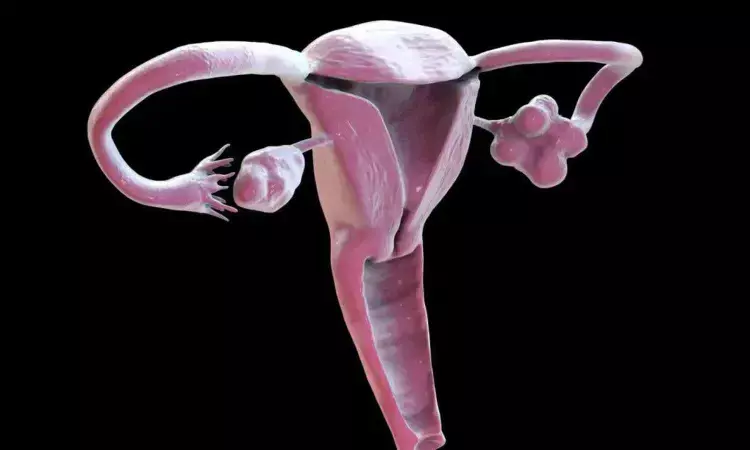- Home
- Medical news & Guidelines
- Anesthesiology
- Cardiology and CTVS
- Critical Care
- Dentistry
- Dermatology
- Diabetes and Endocrinology
- ENT
- Gastroenterology
- Medicine
- Nephrology
- Neurology
- Obstretics-Gynaecology
- Oncology
- Ophthalmology
- Orthopaedics
- Pediatrics-Neonatology
- Psychiatry
- Pulmonology
- Radiology
- Surgery
- Urology
- Laboratory Medicine
- Diet
- Nursing
- Paramedical
- Physiotherapy
- Health news
- Fact Check
- Bone Health Fact Check
- Brain Health Fact Check
- Cancer Related Fact Check
- Child Care Fact Check
- Dental and oral health fact check
- Diabetes and metabolic health fact check
- Diet and Nutrition Fact Check
- Eye and ENT Care Fact Check
- Fitness fact check
- Gut health fact check
- Heart health fact check
- Kidney health fact check
- Medical education fact check
- Men's health fact check
- Respiratory fact check
- Skin and hair care fact check
- Vaccine and Immunization fact check
- Women's health fact check
- AYUSH
- State News
- Andaman and Nicobar Islands
- Andhra Pradesh
- Arunachal Pradesh
- Assam
- Bihar
- Chandigarh
- Chattisgarh
- Dadra and Nagar Haveli
- Daman and Diu
- Delhi
- Goa
- Gujarat
- Haryana
- Himachal Pradesh
- Jammu & Kashmir
- Jharkhand
- Karnataka
- Kerala
- Ladakh
- Lakshadweep
- Madhya Pradesh
- Maharashtra
- Manipur
- Meghalaya
- Mizoram
- Nagaland
- Odisha
- Puducherry
- Punjab
- Rajasthan
- Sikkim
- Tamil Nadu
- Telangana
- Tripura
- Uttar Pradesh
- Uttrakhand
- West Bengal
- Medical Education
- Industry
Binge Eating and Bulimia Higher in PCOS Patients: Review Influences 2023 Guideline Recommendations

USA: Research featured in The Journal of Clinical Endocrinology & Metabolism contributes to the 2023 PCOS Guidelines by emphasizing the need to consider the risk of disordered eating and eating disorders in women with PCOS, regardless of their weight, particularly when offering lifestyle counseling.
Polycystic ovary syndrome (PCOS) has been linked to an increased risk of disordered eating and eating disorders. However, previous meta-analyses on this association have been constrained by limited sample sizes, leading to potential gaps in understanding the full extent of this connection. These earlier studies have provided insights but lack the robustness for definitive conclusions due to the small numbers involved. The relationship between PCOS and disordered eating remains an area of significant concern, necessitating further investigation with larger, more comprehensive analyses to inform better clinical practices and guidelines for managing women with PCOS.
Laura G. Cooney, Department of Obstetrics and Gynecology, University of Wisconsin et. al. led a study to inform the 2023 International PCOS Guideline. The research involved a systematic review and meta-analysis to assess the prevalence of disordered eating and eating disorders among women with PCOS compared to those without the condition.
For this study, Ovid MEDLINE, EMBASE, PsycInfo, and All EMB were searched from their inception up to February 1, 2024, to identify studies comparing the prevalence of disordered eating and eating disorders in adolescent or adult women. Random effects meta-analyses were utilized to calculate the pooled odds ratios (OR) or standardized mean differences (SMD) for outcomes in women with PCOS compared to controls. The methodological quality of the studies was evaluated using the Grading of Recommendations, Assessment, Development, and Evaluations (GRADE) system, and the included studies were also assessed for risk of bias.
The key findings of the study are:
- Of the 1,352 articles identified, 20 were included in the study, encompassing 28,922 women with PCOS and 258,619 controls.
- Women with PCOS had significantly higher odds of having any eating disorder, with the association being even stronger in studies where PCOS was diagnosed using the Rotterdam criteria.
- The odds of bulimia nervosa, binge eating disorder, and disordered eating were increased in women with PCOS, but there was no significant increase in the odds of anorexia nervosa.
- Mean disordered eating scores were higher in women with PCOS, even when accounting for normal and higher BMI categories.
The researchers concluded that it is crucial to consider the risk of disordered eating and eating disorders in the care of women with PCOS, irrespective of their weight, particularly when offering lifestyle counseling.
Reference
Laura G Cooney, Kaley Gyorfi, Awa Sanneh, Leeann M Bui, Aya Mousa, Chau Thien Tay, Helena Teede, Elisabet Stener-Victorin, Leah Brennan, Increased Prevalence of Binge Eating Disorder and Bulimia Nervosa in Women With Polycystic Ovary Syndrome: A Systematic Review and Meta-Analysis, The Journal of Clinical Endocrinology & Metabolism, 2024;, dgae462, https://doi.org/10.1210/clinem/dgae462
Dr Kamal Kant Kohli-MBBS, DTCD- a chest specialist with more than 30 years of practice and a flair for writing clinical articles, Dr Kamal Kant Kohli joined Medical Dialogues as a Chief Editor of Medical News. Besides writing articles, as an editor, he proofreads and verifies all the medical content published on Medical Dialogues including those coming from journals, studies,medical conferences,guidelines etc. Email: drkohli@medicaldialogues.in. Contact no. 011-43720751


